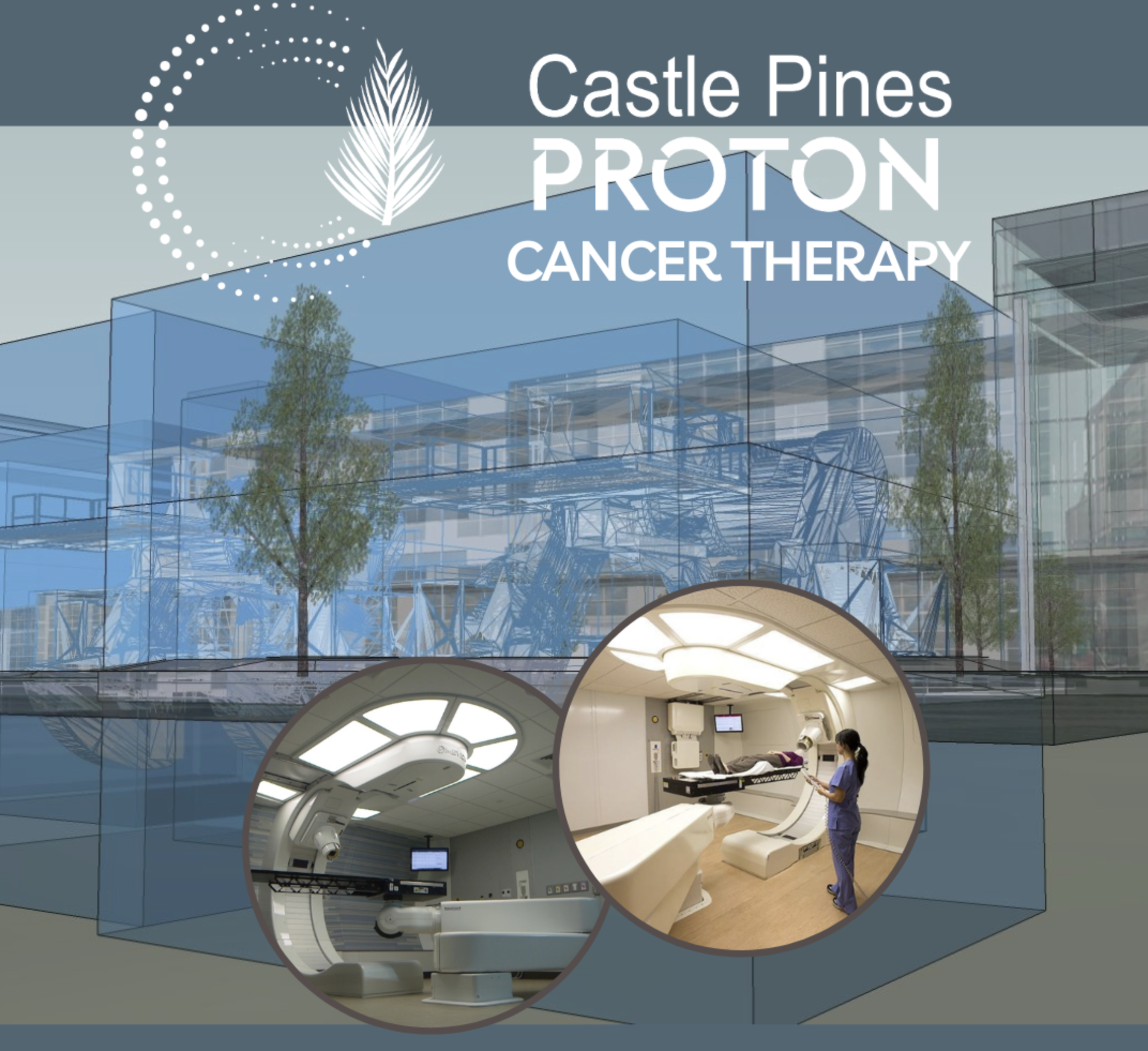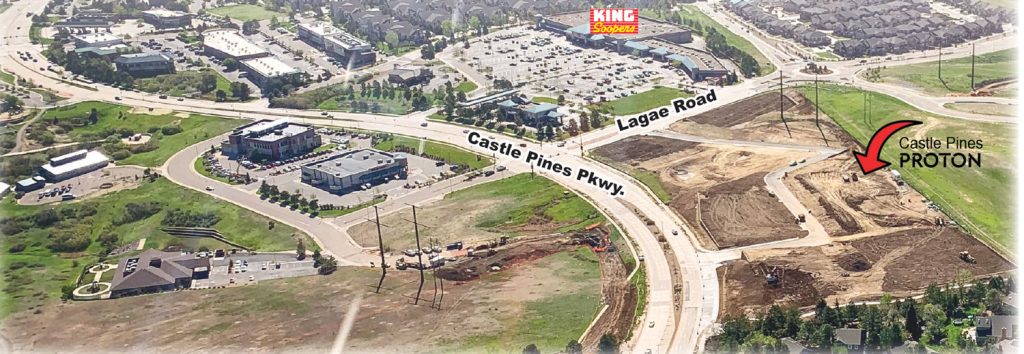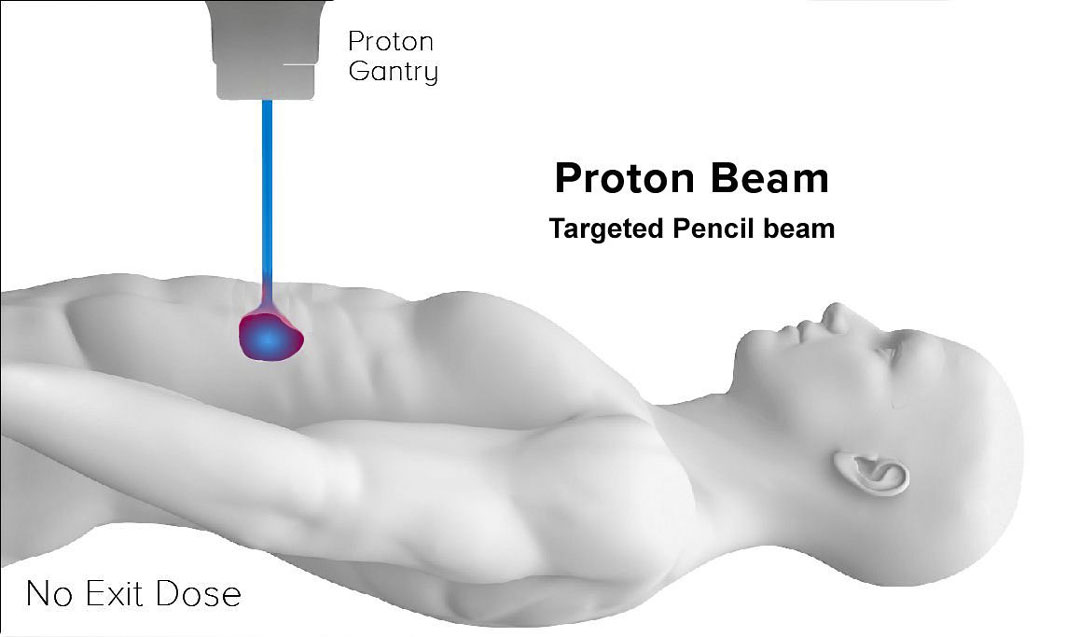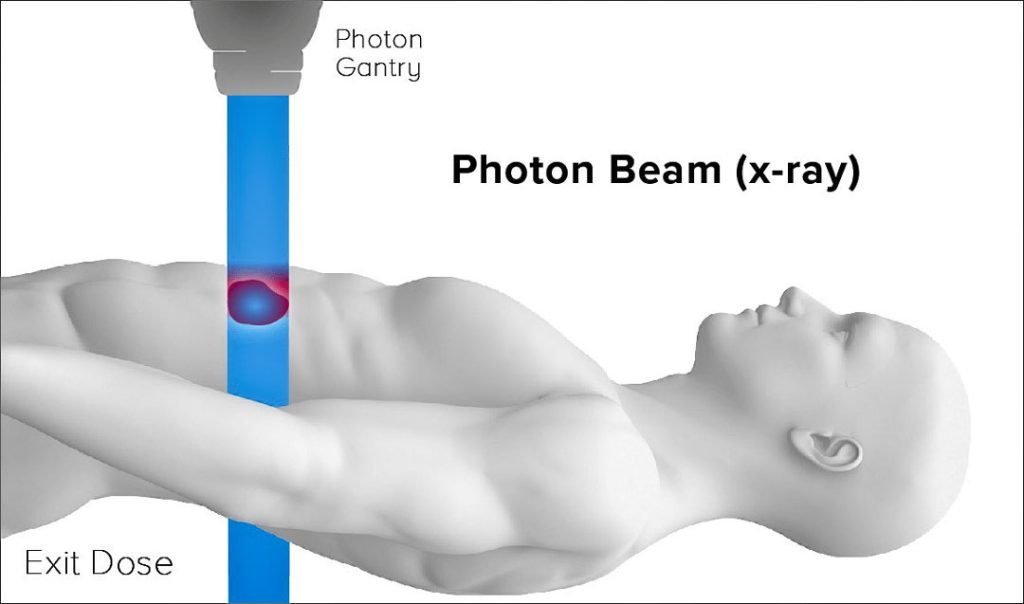Cutting-edge cancer treatment center coming to Castle Pines

Castle Pines City Council approved the sale of city-owned property on the southwest corner of Castle Pines Parkway and Lagae Road to make way for a proposed 20,000-square-foot proton therapy center to treat various forms of cancer.
The City of Castle Pines is poised to become the home of a 20,000-square-foot specialized medical facility that uses an emerging therapy to more effectively treat a multitude of cancers.
On May 23, Castle Pines City Council gave final approval for a purchase agreement to sell City-owned property at the southwest corner of Castle Pines Parkway and Lagae Road to Castle Pines Proton, and the property is currently in escrow.

Castle Pines Proton will build a state-of-the-art cancer treatment facility on lot 4 of the former Lagae Family Trust property, located on the southwest corner of Castle Pines Parkway and Lagae Road.
Stephen Courtney, managing director for the Delaware-based LLC, said if all goes as planned, the organization will invest approximately $92 million in the Castle Pines Proton facility. The company anticipates breaking ground in the spring of 2024. The specialized cancer treatment center will take approximately 20 months to construct, including roughly nine months to install and calibrate the sophisticated proton equipment needed to administer the therapy.
Proton therapy has become a treatment option for patients with cancerous tumors, especially those found in sensitive locations near the brain, spine, heart and eyes. Proton therapy is an alternative to conventional radiation therapy, which uses electrons to shrink tumors and can cause significant side effects.
According to Courtney, the proton therapy devices administer a more precise and targeted treatment, which reduces potential impacts on healthy tissues and vital organs. “The protons enter the body with very low energy and deliver a burst of energy within the cancerous growth,” he stated.
Castle Pines Proton estimates the outpatient medical facility will bring 32 full-time, high-income jobs to the City, including physicists, oncologists, nurses and administrative staff. The group identified several potential locations around the Denver metro area and chose Castle Pines due to its central location between Denver and Colorado Springs.
“It’s important that we offer our treatment to the entire region,” stated Courtney. “We don’t have affiliations with any specific providers or healthcare network; we want to be an independent provider serving all healthcare facilities.”
Courtney added that facilities offering specialized care tend to be regional destinations to which people will travel from many miles away, sometimes from abroad. The proximity to recreational opportunities in Castle Pines was also a plus; and because the short- and long-term side effects of proton therapy are minimal, Courtney said it is possible that patients could get in a round of golf following treatment, especially since the therapy takes only a few minutes to administer.
The City originally intended to construct a municipal administration building on the 1.9-acre lot, but plans for a new facility have been put on hold indefinitely. The City sold the land for $1.18 million to SCI.D Castle Pines, LLC.
Will Mace, director of real estate for the group and a resident of Castle Rock, said when the proton therapy cancer treatment center opens, the influx of skilled staff and patients will provide an economic boost to the community and will likely promote ancillary support businesses as a result.
Kevin Rants, who represents Council District 2, said the sale of the land “kick-starts our effort to continue to build out our business district.” He added, “We have at our fingertips a business that will not only be a regional attraction and bring people to our community, but it is a top-tier business that will do some amazing work to cure people of a very, very difficult disease.”
The group developing Castle Pines Proton has more than 15 years of experience in the development process of these specialized facilities around the world. They have earmarked more than $300 million for development of several facilities, including one in Connecticut and one in central California, which are both in the design phase.
According to Courtney, proton therapy facilities are safe for patients, staff and the general public and fall within state and federal regulatory statutes that require all radiation-production facilities to be licensed. “The regulations are the same as for X-ray therapy,” he said.
In 1988, after more than 40 years of clinical trials, the FDA approved proton therapy as a cancer treatment option, offering patients a safe, non-invasive and generally pain-free treatment.
The group’s website says proton therapy offers patients a higher quality of life during and after treatment. Protons can be charged to reach the exact depth where a tumor is located, then stop. Virtually no proton radiation continues past the tumor site.

According to the Mayo Clinic, studies have suggested that proton therapy may cause fewer side effects than traditional radiation, since doctors can better control where the proton beams deliver their energy.

The National Association for Proton Therapy, an independent nonprofit organization founded in 1990, states there are 42 proton therapy treatment centers currently operating in the U.S. More than 200,000 patients have been treated with the groundbreaking therapy method since it received approval from the U.S. Food and Drug Administration in 1988.
Common proton therapy treatment areas include the bladder, brain, breast, intracranial, liver, lungs, lymph nodes, pancreas and prostate. It is also a highly effective method for treating children.
To learn more, visit castlepinesproton.com.
By Chris Michlewicz; photos courtesy of Castle Pines Proton